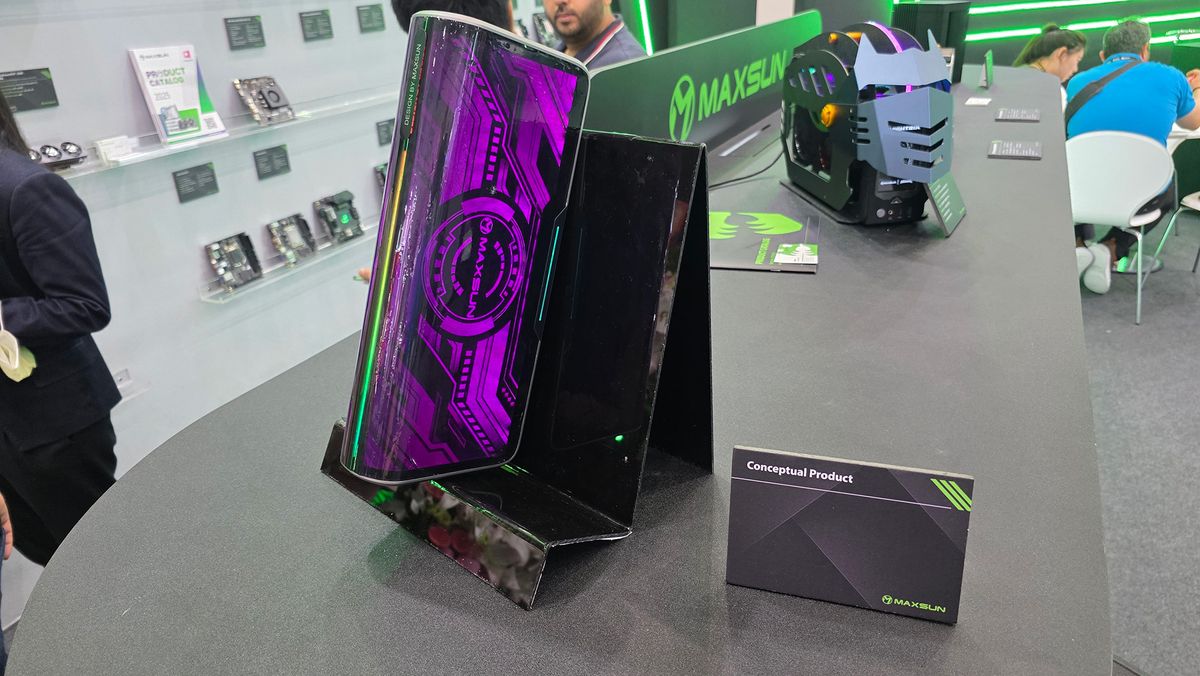Startup uses ancient bacteria to turn Texas CO2 into green chemicals
Again, the German-Danish startup using ancient bacteria to turn CO2 into new chemicals, is building a new bioreactor plant in Texas.
The facility will be located at Texas City, a major petrochemicals park located on the Gulf Coast. The industrial centre is run by Diamond Infrastructure Solutions — a joint venture between chemicals giant Dow and Macquarie Asset Management.
“We’re building a global company, and that also means taking our technology into new regions,” Again’s co-founder Max Kufner told TNW. “There is a high demand in the US for our chemicals, particularly ones that can be sustainably made on-shore.”
The new facility will capture CO2 from one of Texas City’s refineries. Again will then combine the gas with hydrogen and feed the concoction to a host of millennia-old bacteria. The little germs devour the brew, turning it into commercial-grade compounds like acetate. This is the base chemical in everything from plastics and cosmetics to paint.
Grab that deal
Most industrial acetate is derived from fossil fuels. By using CO2 that would’ve otherwise entered the atmosphere, Again aims to produce cleaner chemicals. The company claims its CO2 fermenter can cut the greenhouse gas emissionsof chemical-making by up to 80%.
The petrochemical industry is responsible for 4% of the world’s total GHG emissions — twice that of air travel — so Again’s tech could make a huge impact. The company also claims its product is cost-competitive with the same chemicals made using fossil fuels.
Again opened its first pilot plant in Copenhagen in 2023, which converts up to 1 tonne of CO2 each day and turns it into acetate. The company is also currently building a facility in Norway, backed by a mn grant from the EU’s Horizon Europe research initiative.
Again emerged from over a decade of research led by Dr. Torbjørn Jensen and Professor Alex Nielsen at the Technical University of Denmark. They teamed up with Kufner, a German former early-stage investor, to found the startup in 2021. So far, Again has raised mn, according to Dealroom.
The company has already broken ground at the Diamond Texas City site, where it aims to build a new facility and begin production within a year. To bring its low-carbon chemicals to market, Again is partnering with German chemicals distributor Helm, targeting heavy industries in the region as key customers.
Story by
Siôn Geschwindt
Siôn is a freelance science and technology reporter, specialising in climate and energy. From nuclear fusion breakthroughs to electric vehicSiôn is a freelance science and technology reporter, specialising in climate and energy. From nuclear fusion breakthroughs to electric vehicles, he's happiest sourcing a scoop, investigating the impact of emerging technologies, and even putting them to the test. He has five years of journalism experience and holds a dual degree in media and environmental science from the University of Cape Town, South Africa. When he's not writing, you can probably find Siôn out hiking, surfing, playing the drums or catering to his moderate caffeine addiction. You can contact him at: sion.geschwindtprotonmailcom
Get the TNW newsletter
Get the most important tech news in your inbox each week.
Also tagged with
#startup #uses #ancient #bacteria #turnStartup uses ancient bacteria to turn Texas CO2 into green chemicals
Again, the German-Danish startup using ancient bacteria to turn CO2 into new chemicals, is building a new bioreactor plant in Texas.
The facility will be located at Texas City, a major petrochemicals park located on the Gulf Coast. The industrial centre is run by Diamond Infrastructure Solutions — a joint venture between chemicals giant Dow and Macquarie Asset Management.
“We’re building a global company, and that also means taking our technology into new regions,” Again’s co-founder Max Kufner told TNW. “There is a high demand in the US for our chemicals, particularly ones that can be sustainably made on-shore.”
The new facility will capture CO2 from one of Texas City’s refineries. Again will then combine the gas with hydrogen and feed the concoction to a host of millennia-old bacteria. The little germs devour the brew, turning it into commercial-grade compounds like acetate. This is the base chemical in everything from plastics and cosmetics to paint.
Grab that deal
Most industrial acetate is derived from fossil fuels. By using CO2 that would’ve otherwise entered the atmosphere, Again aims to produce cleaner chemicals. The company claims its CO2 fermenter can cut the greenhouse gas emissionsof chemical-making by up to 80%.
The petrochemical industry is responsible for 4% of the world’s total GHG emissions — twice that of air travel — so Again’s tech could make a huge impact. The company also claims its product is cost-competitive with the same chemicals made using fossil fuels.
Again opened its first pilot plant in Copenhagen in 2023, which converts up to 1 tonne of CO2 each day and turns it into acetate. The company is also currently building a facility in Norway, backed by a mn grant from the EU’s Horizon Europe research initiative.
Again emerged from over a decade of research led by Dr. Torbjørn Jensen and Professor Alex Nielsen at the Technical University of Denmark. They teamed up with Kufner, a German former early-stage investor, to found the startup in 2021. So far, Again has raised mn, according to Dealroom.
The company has already broken ground at the Diamond Texas City site, where it aims to build a new facility and begin production within a year. To bring its low-carbon chemicals to market, Again is partnering with German chemicals distributor Helm, targeting heavy industries in the region as key customers.
Story by
Siôn Geschwindt
Siôn is a freelance science and technology reporter, specialising in climate and energy. From nuclear fusion breakthroughs to electric vehicSiôn is a freelance science and technology reporter, specialising in climate and energy. From nuclear fusion breakthroughs to electric vehicles, he's happiest sourcing a scoop, investigating the impact of emerging technologies, and even putting them to the test. He has five years of journalism experience and holds a dual degree in media and environmental science from the University of Cape Town, South Africa. When he's not writing, you can probably find Siôn out hiking, surfing, playing the drums or catering to his moderate caffeine addiction. You can contact him at: sion.geschwindtprotonmailcom
Get the TNW newsletter
Get the most important tech news in your inbox each week.
Also tagged with
#startup #uses #ancient #bacteria #turn

.png)








